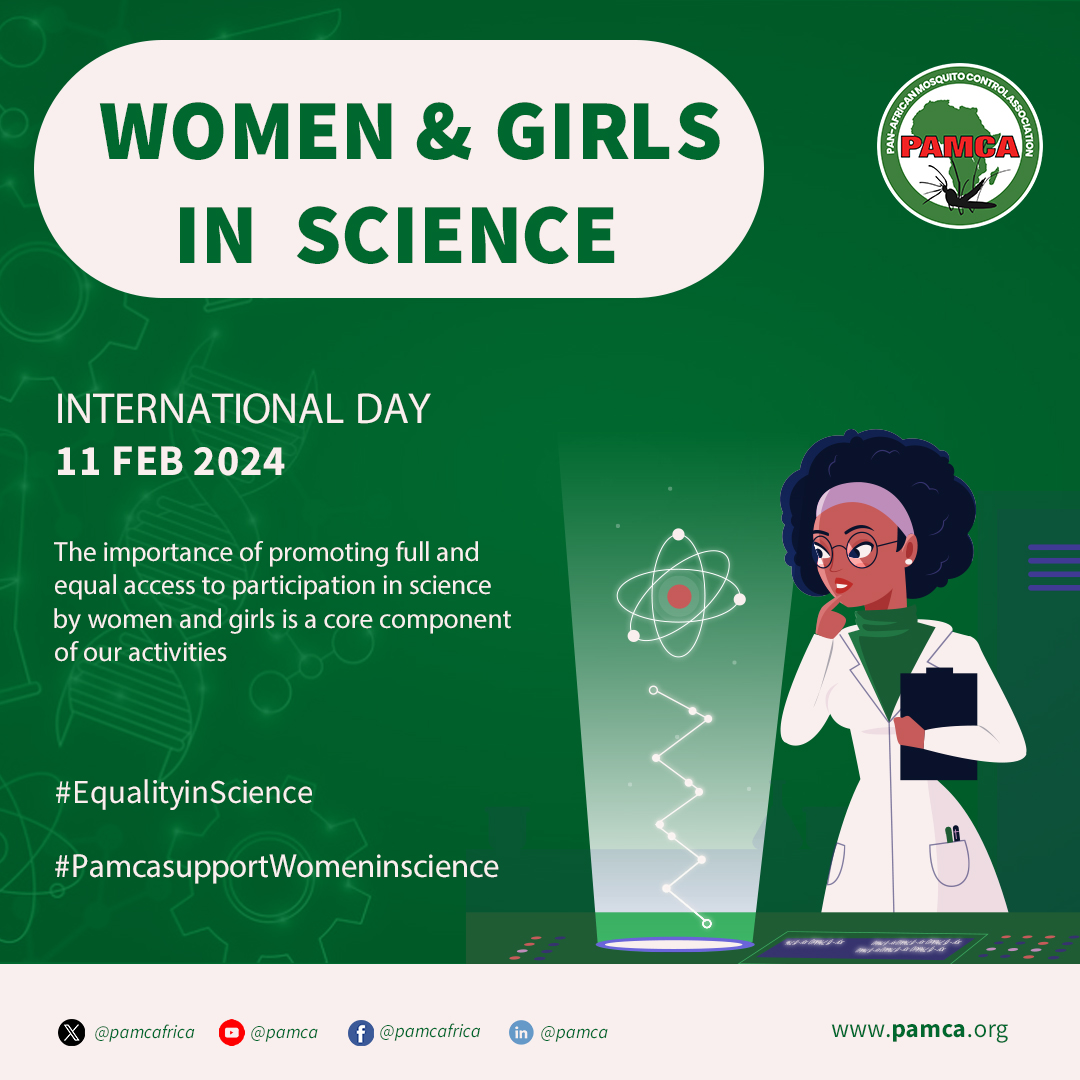International Day of Women and Girls in Science, February 11, 2024
For this year International Day of Women and Girls in Science, together with our partners at MalariaGEN , we are celebrating the contributions of women in shaping the future of malaria research and control. Dr Damaris Matoke-Muhia is biomedical scientist and a Programme Manager for Capacity Building, Gender Mainstreaming, and Career Progression at PAMCA. As a dedicated advocate for gender equality in science, she sheds light on this missing piece of the puzzle.
PAMCA Women in Vector Control (WiVC) was born out of a critical observation made during PAMCA annual meetings: a glaring lack of female representation in pivotal roles within vector control activities. “Most of the time, if you looked at the panelists, keynote speakers, and symposia organisers, you'll find that it was heavily reliant on mostly the male gender,” Damaris explains.
In fact, a 2018 survey on women's representation in vector control activities like entomology showed only about 20 women for every 100 people. For the activities to be effective, this imbalance had to be rectified. Damaris also points out that women are underrepresented in leadership and decision-making roles within malaria research – most women are co-investigators rather than leads in proposals and projects. “We felt that there was the need to look at how we could bridge that gap.” Damaris remarks that it was time to think about how to bring all voices on board in addressing the control of vector-borne diseases, including the most deadly of all, malaria.
With a chapter in over 30 African countries, PAMCA WiVC is working on a number of initiatives to increase the participation of women in the control of vector-borne diseases. For example, “LiftHer2” is the second iteration of the WiVC’s mentorship programme which matches early-career women working in vector-borne disease control in Africa with more experienced counterparts. “We want to mentor women in this field to occupy decision-making positions... so that whatever decision they make at higher levels will not only be because of the knowledge they have received through [scientific] training, but also because of the experience they have had as mothers, as sisters, as women in the community."
Damaris also proposes that women's experience at the community level, where they often take the lead in ensuring family health, plays into vector control activities. “We also want to engage non-professionals, who are the women at community levels, school-going children, and the local elders, to educate and sensitise them of the need to use the interventions effectively.”
WiVC's impact extends beyond individual empowerment to systemic change. Damaris highlights the importance of advocating for gender-sensitive policies and creating safe work environments for women in vector control. "We are looking at engaging institutions across the continent to create safeguarding policies and anonymous reporting structures to enhance workplace safety and prevent harassment, bullying, or discrimination from happening."
To truly achieve gender equity in vector control, men also need to be part of the cause, and this is an idea that PAMCA WiVC is actively reinforcing. "We do not only just engage women. We need men as allies, especially to promote equal participation and leadership opportunities." Ultimately, Damaris drives home one key message – to rid the world of malaria and other vector-borne diseases, we need to build an inclusive and equitable workforce.
Read more about other incredible women who are shaping the future of malaria control here: Beyond Boundaries - three women shaping the future of malaria control

